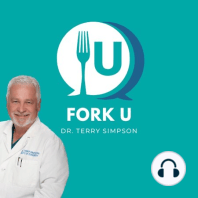27 min listen

Red Meat: Is it good or bad? The answer is... sometimes
Red Meat: Is it good or bad? The answer is... sometimes
ratings:
Length:
4 minutes
Released:
Oct 26, 2021
Format:
Podcast episode
Description
On my tiktok channel (@drterrysimpson or terrysimpson309) putting up a review of red meat the comments are reflective of the polarization that makes politics look like gentle disagreements.Nutrition is nuanced - meaning, it is rare that something is good or bad for us, except for Death Cap Mushrooms, they will kill you, although I hear they are delicious. The same is true for red meat. What we have are rarely the types of nutrition studies where we feed people precise amounts of food and see the results (the DASH diet studies were great with this -ref 1 ). Instead we rely on what people tell us, which can be accurate, or not - and we look at markers for disease instead of the disease itself (looking at end points of heart disease we look at LDL, cholesterol, C-reactive protein, and rather non-specific markers.Red Meat and Glycemic Control and InflammationIn this study (ref 2) they examined the premise that red meat's has an effect on inflammatory markers and glycemic control. So the study was a meta analysis of randomized control of glycemic control and inflammatory markers.Adults that were studied were given various quantities of red meats and then checked for glycemic control and inflammation. The end result "Total red meat consumption, for up to 16 weeks, does not affect changes in biomarkers of glycemic control or inflammation for adults free of, but at risk for, cardiometabolic disease. "Does this put this to bed - not really, but the proposed ill effect of red meat is not something that is seen in these studies. Here are the markers they studied: glucose, insulin levels, HOMA-R, Hemoglobin A1c, C-reactive protein, IL-6, and TNF-alpha.This was a group of studies that went to about 16 weeks (four months) so any longer term issues with red or even red processed meats, were not seen. But there were clearly no indication found in these studies.What about other markers for heart disease?So the next question is the effect of red meat on lipids, lipoproteins and blood pressure(ref 3)? It turned out that increasing red meat did not affect those variables for heart disease.What if you check not just red meat, but "red meat with diets that replaced red meat with a variety of foods. We stratified comparison diets into high-quality plant protein sources (legumes, soy, nuts); chicken/poultry/fish; fish only; poultry only; mixed animal protein sources (including dairy); carbohydrates (low-quality refined grains and simple sugars, such as white bread, pasta, rice, cookies/biscuits); or usual diet. We performed random-effects meta-analyses comparing differences in changes of blood lipids, apolipoproteins, and blood pressure for all studies combined and stratified by specific comparison diets."- from ref 4. They found that changing red meat for plant protein had a minimal effect, and yet other studies (ref 2) found that plant protein had no significant difference at all.Those short term studies, which are clear changes with specific amounts over a short period of time, appear to contrast with the studies of various groups where they look at the risk of type 2 diabetes and red meat consumption. Take reference 5, where they looked at the increase of diabetes in different groups based on self-reporting of red meat intake. These studies are not as powerful as the controlled trials above, and they are confounded by other variables - people who eat more red meat have higher caloric intake and more obesity, they also tend to drink more and to smoke more. It is not easy to isolate, statistically, those variables out and this is always the issue with large cohort studies.Take the many studies of the Seventh Day Adventist group, who are considered America's Blue Zone in Loma Linda, California. They don't eat meat, they live longer -- but there is more, that group tends to exercise more, they do not
Released:
Oct 26, 2021
Format:
Podcast episode
Titles in the series (52)
Bill Lagakos and The Trouble With Diets by Fork U with Dr. Terry Simpson